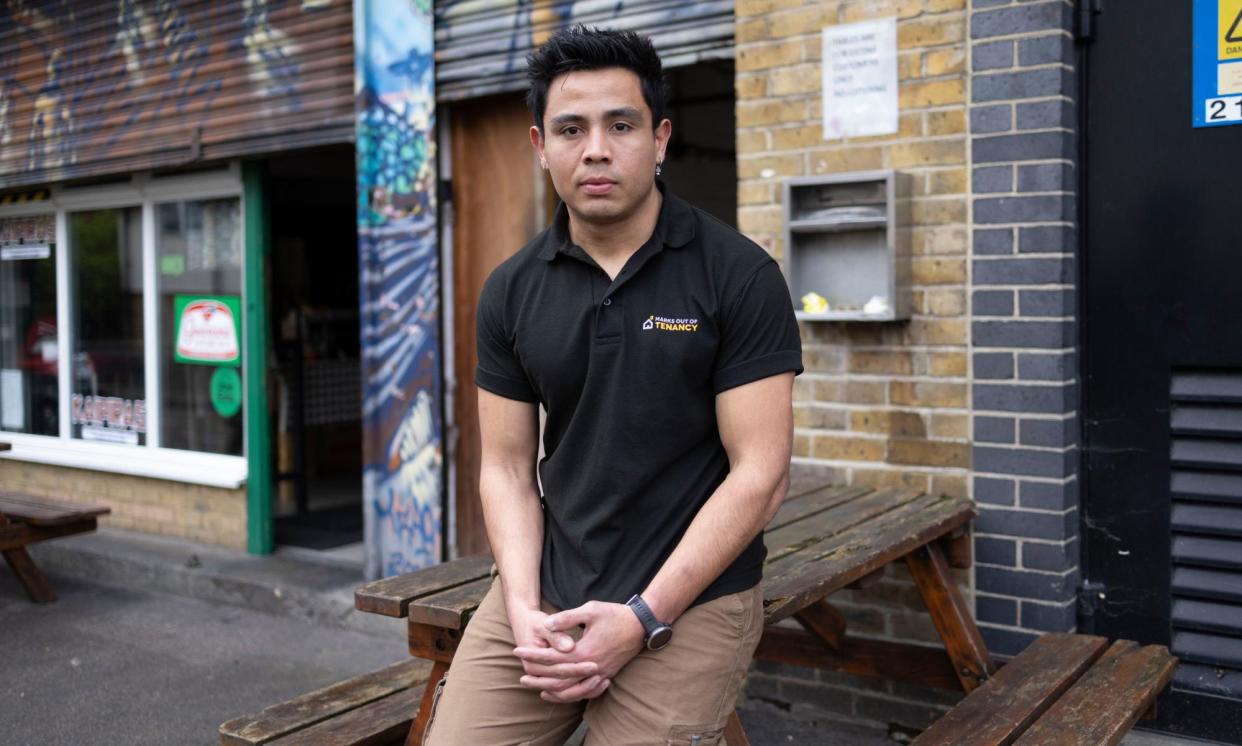‘Their system is broken’: the people caught up in Home Office IT chaos

Jorge Gomez, a Nicaraguan refugee, says he has called the Home Office more than 100 times to try to sort out the problems he has had with proving he has the right to work in the UK.
A rugby player who previously played for his national team in Nicaragua, Gomez, 28, fought for four years before he was granted leave to remain in the UK on the grounds that he had experienced political persecution in his home country.
He believed that after he was recognised as a refugee in December 2022 his troubles would be over. More than a year later he was still struggling. This time the issue was IT-related.
Gomez is one of tens of thousands of migrants and refugees who have been victims of a Home Office database fiasco, according to documents leaked to the Guardian. The problem has merged the identities of people within a huge government database, meaning people logging on have found photographs or visa details often relating to complete strangers attached to their records.
The Home Office initially delayed sending Gomez his biometric residence permit (BRP) for four months, until April 2023. He applied for three jobs but was unable to take up any offers as he had no proof of his right to work. When he eventually received his permit, he was unable to generate a reference number, known as a share code, which allows prospective employers to confirm a person’s legal right to work in the UK. His online account has never worked.
“The Home Office’s digital system is completely broken. They have been playing ping pong with me instead of sorting this out,” he said. “I have called them more than a hundred times. I feel so vulnerable because when I log on I still don’t have a share code and it says I’m not eligible to work even though I am. I feel that the Home Office has damaged my life and my mental health.”
Gomez is not alone. A refugee from Zimbabwe told the Guardian that her identity and photograph had been mixed up with that of another woman. “When I logged into my account last November I found my photo had been removed and there were three photos of another woman in its place. I thought my identity had been stolen,” she said.
“When I called the Home Office and told the official what I was seeing on the screen, they said: ‘I’m not seeing what you’re seeing.’ I was made to feel as if I was imagining it,” she added. “Each time I rang them I was given a different explanation of what had happened. It reminds me of the Post Office scandal. Because of this system we are being made to feel like failures although it is the system that has failed us.”
Agnieszka Maciak, from Poland, said she spent three months unemployed because she was unable to sort out problems with her online account. “I got a job offer and logged on to my settled status but found my photo with somebody else’s visa,” she said.
One refugee received three different BRP cards with his name on, each one bearing a different national insurance number. His case worker described the system as “a mess”. “Sometimes one parent in a family will get the card and NI number and the other won’t, meaning they can’t apply for benefits,” she said.
A Swedish woman who works at a UK university described her experience as “Kafkaesque” and said she was in a constant state of stress.
She has pre-settled status as an EU citizen and was informed this status was being extended, but when she logged on to the system she had “a nasty surprise to find a message saying I don’t have the right to reside in the UK”. She said: “I have the right to access NHS treatment but was sent a letter from the NHS saying I will have to start paying for my treatment. The whole system is Kafkaesque and there’s nothing you can do.”
A Home Office spokesperson said: “The impact is predominantly on the efficiency of our own processes. Steps have been taken to mitigate any risks for people and address the issues as quickly as possible.”

 Yahoo News
Yahoo News 
